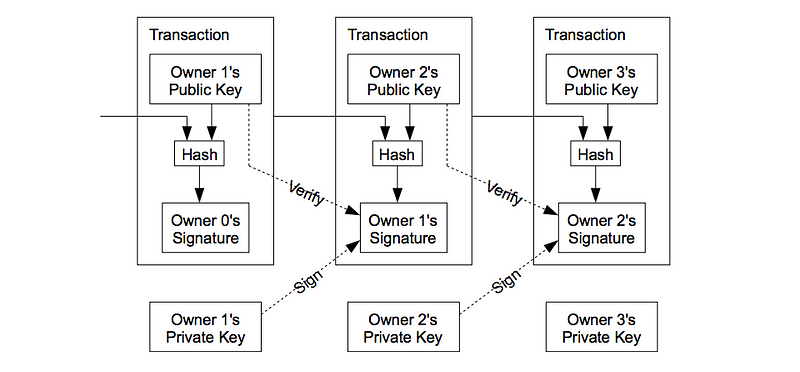Logitech announces Intel NUC-powered ‘ConferenceCam Kit’ video conferencing bundle | BetaNews http://betanews.com/2016/03/07/logitech-intel-nuc-conferencecam-kit/
Increase your IPv4 security with Fail2Ban and Tinyhoneypot on Debian Jessie
Increase your IPv4 security with Fail2Ban and Tinyhoneypot on Debian Jessie https://www.howtoforge.com/tutorial/increase-ipv4-security-with-fail2ban-and-tinyhoneypot-on-debian-jessie/
Pax releases Codex, a legal scripting language for Ethereum
Pax is using Ethereum to build a peer to peer legal system. The best way to explain Ethereum is by contrasting it with Bitcoin. Bitcoin’s value comes from the fact that every transaction that happens is added to the record and can’t be changed. Each full node on the network holds a complete copy of the transaction history, which eliminates any possibility of double-spending. It turns out that this approach can also be used to create binding self-enforcing legal contracts between people, which can have use cases as wide ranging as employment, rent, deeds, property transfer, restitution, incorporation, subscriptions, billing, voting and dividend systems. Where there are disputes, a blockchain can hold an objective record of events making dispute resolution relatively trivial compared to traditional legal systems, both on the back-end (legislation) and the front-end (arbitration).
Codex is a legal scripting DSL (domain specific language) geared towards creating executable contracts via the Pax directory and API. Codex is a flexible and powerful way for clients to interact with Ethereum, and is underwritten by Solidity (one of Ethereum’s most popular high-level programming languages) and the Web3.js, which is a Javascript library which allows front-facing apps to connect to the Ethereum network.
As with Ethereum the focus of Codex is self executing contacts, but it should provide hints at expanding blockchain into other legal realms.
Amazon releases Lumberyard, a free AAA game engine. A platform for legal ed of the future?
Amazon Lumberyard is a free, cross-platform, 3D game engine for you to create the highest-quality games, connect your games to the vast compute and storage of the AWS Cloud, and engage fans on Twitch.
Eventually sometime is going to take a tool set like this and figure out how to build a game that simulates at least some of the American legal system. A simulated world with lots of property, contacts, torts, and legal issues and the courts to resolve the issues. Law students would engage each other at different levels to identify and pursue legal issues. Non-player characters would appear as judges, potential clients, and senior attorneys. It would be interesting.
Checkout the Lumberyard announcement video:
Drupal 8.0.3 and 7.42 released | Drupal.org
Drupal 8.0.3 and 7.42 released | Drupal.org https://www.drupal.org/drupal-8.0.3
Setting up a Node.js Application for Production on Ubuntu 14.04
Node.js is an open source Javascript runtime environment for easily building server-side and networking applications. The platform runs on Linux, OS X, FreeBSD, and Windows, and its applications are written in JavaScript. Node.js applications can be run at the command line but we will teach you how to run them as a service, so they will automatically restart on reboot or failure, so you can use them in a production environment.
In this tutorial, we will cover setting up a production-ready Node.js environment that is composed of two Ubuntu 14.04 servers; one server will run Node.js applications managed by PM2, while the other will provide users with access to the application through an Nginx reverse proxy to the application server.
Source: How To Set Up a Node.js Application for Production on Ubuntu 14.04 | DigitalOcean
Good tutorial. You can also do the reverse proxy with Apache.
Trying out Open Live Writer
This is Open Live Writer, an open source fork of the MSFT blog editor Live Writer.
Open Live Writer is like Word for your blog. Open Live Writer is a powerful, lightweight blog editor that allows you to create blog posts, add photos and videos then publish to your website. You can also compose blogs posts offline and then publish on your return. Open Live Writer works with many popular blog service providers such as WordPress, Blogger, TypePad, Moveable Type, DasBlog and many more.
It is a desktop app that gets along well, so far, in Windows 10. I’m sure it’d work just fine in earlier versions of Windows too.
- This is a list
- It should be ordered
- Last bit
- Or maybe just some bullets
- And so on.
- Mix it up
- Levels
- and more levels
- Levels
- many funs
- Mix it up
- And out.
Heading 2
Heading 3
Heading 4
 This is a picture. The image handling features are nice.
This is a picture. The image handling features are nice.
I can center a paragraph for reason I’ll not disclose.
Seems good. Now let’s post…
Online Course Report lists 50 most popular MOOCs of all time
Unlike regular college/ university courses, MOOCs can attract many thousands of enrollees around the world. They can come in the form of active course sessions with participant interaction, or as archived content for self-paced study. MOOCs can be free, or there can be a charge – either on a subscription basis or a one-time charge. Free MOOCs sometimes have a paid “verified certificate” option.
— The 50 Most Popular MOOCs of All Time http://www.onlinecoursereport.com/the-50-most-popular-moocs-of-all-time/
A good list, but be sure to read the caveats at the beginning and end.
Notes from #DCATL Day 1, part 1
Day 1 of DrupalCamp Altanta was a short day, just Friday afternoon, but there were plenty of excellent sessions on the agenda. I actually took a fair number of notes and picked up several ideas for making the Drupal sites I run, run better.
I started the afternoon with Building a Better Resource: Improving a Drupal Scholarly Journal Platform. This was a solid presentation by Dan Hansen and Jesse Karlsberg that covered a range of topics from migrating a legacy Drupal 6 site to Drupal 7 to capturing a scholarly journal workflow with the Maestro module. Of particular interest is some of the custom module work being done for the Southern Spaces site. These include a text section module that allows content creators to add section level navigation points into lengthy journal articles and juicebox inline that adds a WP-style shortcode for creating Juicebox Galleries easily. Finally work is being done to create a distribution for scholarly journals that would be useful for law reviews. Finally it’s worth noting that author’s submit articles to the journal via word processor files, not through the WYSIWYG editor.
Next up was Growth Hacking with Content, Marketing Automation & Drupal presented by Shellie Hutchens, the Director of Marketing at Mediacurrent. The focus here was on marketing automation and integrating Drupal sites with marketing platforms. The idea is to shape visitor experience on your site to engage the viewer and slowly gather information that can be used for highly targeted marketing whether it be sales, brand visibility, or higher levels of engagement. Mediacurrent supports the development of a number of marketing automation modules that tie Drupal to many popular marketing platforms.
to be continued…
A Bitcoin primer for budding Ethereum developers
This series of articles will describe just enough of Bitcoin for budding Ethereum developers to better understand how Ethereum works under the hood, then begin to explore some routes by which new Ethereum devs can begin developing contract-orientation just like they developed their sense of object-orientation back in the day.
Source: Time sure does fly! — Medium
This article, first in a series, provides an overview of Bitcoin designed to help new Ethereum developers get their bearings in the fun filled world of cryptocurrency and blockchain.

